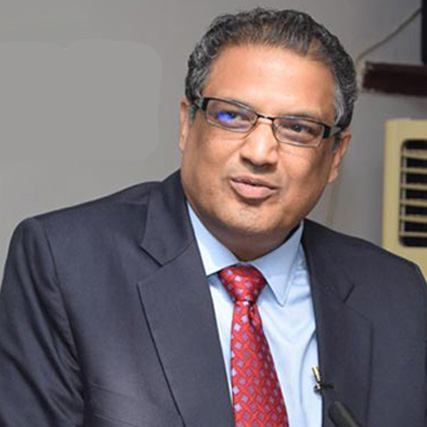Human life has always been composed of contradictory thoughts and variegated ideas. To live life, people have diverse choices.
Some people believe only in “I”, and they feel that there is nothing in this world except me. The axis and center of this world is “I”, and all other beings and things should revolve around me.
Such a person considers himself the most important. Because of their self-centered mindset, these people view every incident, event, or action as related to themselves. Regardless of the importance of the event itself, they only see whether it will bring them benefit or harm.
In reality, human thinking is divided into individual, group, and collective perspectives.
Individual thinking is based on selfishness and the concept of “I,” while group thinking is centered on “we.”
Those influenced by group thinking care only about the benefit or loss of their group, their party, or their family. They are indifferent to the fact that the benefit of their family may cause harm to thousands of others.
They do not even worry whether their party’s ideology is helping the stability of the country or harming it. Family feuds, political hatreds, and group rivalries all arise from this kind of thinking.
The third ideology is less popular. The two ideologies mentioned above are about gain and profit, while this third one is about loss and sacrifice.
Yet, the great figures of history are those who endured loss and harm for themselves but caused harm to none.
For them, personal or group benefit is not important collective benefit matters more.
They, like the mystics (Sufis), prefer losing over winning.
“Haran kheyd faqīrā”
(The saint plays the game of losing.)
Similarly, in the famous poem of Sohni Mahinwal, Ali Hamza’s verse became very popular:
“Haan main nakaam ni, kachiyan da honda kacha anjaam ni.”
(“Yes, I am not unsuccessful unripe ones always meet an unripe end.”)
The foundation of this unpopular ideology is that what we often consider failure and defeat is, in truth, the ladder to success.
Many biographers have written that during the Treaty of Hudaybiyyah, several of the noble Companions (may Allah be pleased with them) thought that the Holy Prophet ﷺ was making a losing deal.
But history proved that this peace agreement planted the flag of Islam across the Arab world, and even the hostile tribes joined the Islamic caravan.
In my personal view, human arrogance, ego, stubbornness, selfishness, and self-love ultimately lead to conflict, war, and destruction.
On the other hand, humility, reconciliation, flexibility, and collective thinking become the harbinger of peace, harmony, and unity.
All three options are open before humankind but we must remember history’s lesson: the path of war and destruction is always uncertain.
Even Napoleon, the conqueror of the world, not only lost the Battle of Waterloo to the Duke of Wellington but also lost his crown and throne.
Hitler subjugated more than half of Europe, but if he had not been obsessed with conquering Russia, he would not have been forced to commit suicide in his bunker.
Remember peace, reconciliation, and compromise are not done by weak or cowardly people.
Neither Nelson Mandela was weak or cowardly, nor Salahuddin Ayyubi or Richard the Lionheart.
In truth, only brave people can make peace, reconciliation, and compromise.
In my humble and limited opinion, Benazir Bhutto’s reconciliation was not a “deal” but a courageous step.
Although at that time it became infamous as a “deal,” this effort after General Musharraf’s departure from power and Benazir Bhutto’s martyrdom was lost in the pages of history.
But had it succeeded, it could have led to national unity, a joint front against terrorism, and the creation of a new balance between civilian and military power.
Unfortunately, a few conspirators sabotaged it, laying such a foundation of instability in the country that the very concept of reconciliation has vanished far and wide even though nations and countries progress only through reconciliation.
Our country, Pakistan, is currently facing dangerous assaults
in Khyber Pakhtunkhwa, the turmoil of the Kharijites,
and in Balochistan, the mischief of India’s interference.
Every now and then, incidents and tragedies occur, claiming human lives.
Meanwhile, floods and rains have wreaked havoc in Punjab, Khyber Pakhtunkhwa, and Sindh.
Neither natural disasters nor Pakistan’s enemies ever look to see whether the victim is a civilian or a soldier, a Nooni (PML-N supporter) or an Insafi (PTI supporter), a Peepaliya (PPP supporter) or a Jamaatia (JI follower)!
The loss of anyone is the loss of the whole country.
History’s bitter lessons teach us that if “I” and “we” continue to prosper while “all” suffer loss, then the continued existence of society or nation becomes impossible.
The work in which everyone benefits, even if “I” or “we” face some loss, brings long-term gain.
If individual and group interests harm collective welfare, then ultimately those interests too turn into losses.
From the events and tragedies of the past and present, I have learned this: hatred, enmity, and conflict are not solutions to problems.
Those who envy, hate, or fight even if they win the war will eventually be consumed by their own envy, hatred, and conflict.
Overall, society is meant for peace, reconciliation, gentleness, and compassion,
but a few self-serving people have made it quarrelsome, turning everyone into enemies and targets of hatred.
Human society passes through various conditions and events, during which hatred and anger often dominate. Wars have occurred, and truth and falsehood have been judged but the most successful periods in history have always been times of peace, reconciliation, and harmony.
When ego dominates, there can be no peace or reconciliation.
We must move beyond “I” and “we” and rise to “all.”
For this, wisdom and flexibility are required qualities not absent in our society, but sadly, there are more fire-starters than fire-extinguishers.
Yet I believe that eventually, peace, reconciliation, understanding, and flexibility will prevail over ego and stubbornness.
The heads of “I” and “we” will bow low and the head of “all” will rise high.
From there, the era of peace and prosperity will begin.
“May all be well, and may all be blessed.”
 Colors
Colors  View Books
View Books 



